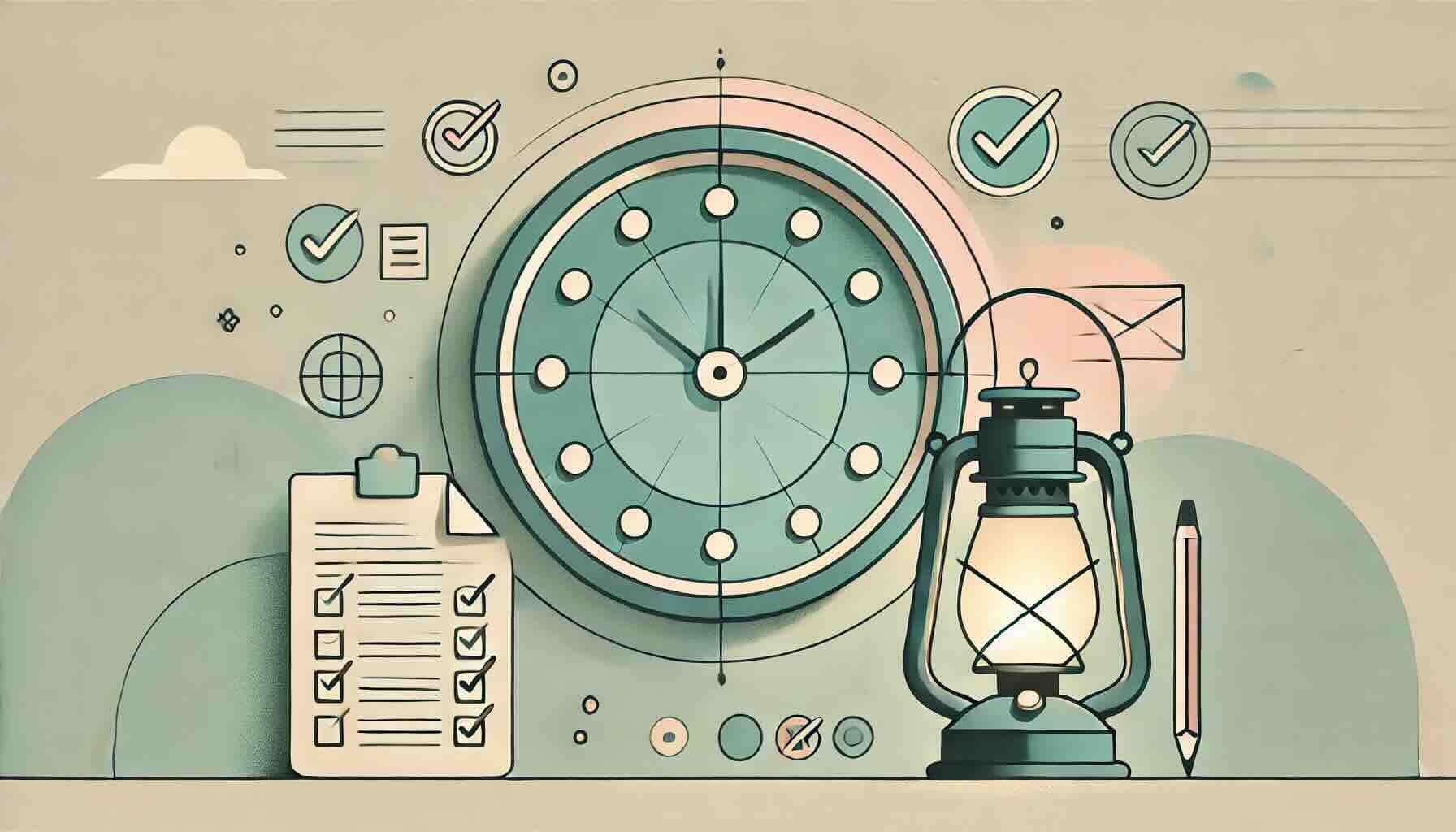Freelancing is a dream career for many—it offers flexibility, freedom, and the ability to work from anywhere. But if you’re just starting out, freelancing can feel overwhelming, and self-doubt can creep in. Is this the right path? Will it work out? The truth is, you won’t know until you try. Even if freelancing is perfect for you, mistakes are inevitable. The key is to learn from them and keep growing.
Here are the most common freelancing mistakes to avoid so you can build a sustainable and successful freelance career:
1. Setting your rates too low will devalue your skills
Setting your rates too low can make you seem inexperienced and undervalue your work. It might feel like a good strategy to attract clients, especially when you’re just starting out, but in reality, it can do more harm than good. Clients often associate cheap rates with poor quality, which can lead to attracting those who don’t respect your time, effort, or expertise. Underpricing yourself also makes it harder to raise your rates later, leaving you stuck working for less than you deserve.
How to avoid this mistake
Instead of undervaluing yourself, take the time to price your services appropriately. Your work has real value, and your rates should reflect the skills, experience, and effort you bring to the table. Here’s how to avoid setting your rates too low:
- Research industry-standard rates. Look at what others in your field are charging to get a sense of what’s reasonable. Take into account experience, expertise, and location.
- Factor in expenses, time, and skill level. Your rates should cover not only your time but also taxes, software, equipment, and other business costs.
- Start at a fair rate and increase as you grow. If you’re new, you don’t have to charge premium rates right away, but don’t go so low that it’s unsustainable. Gradually raise your prices as you gain experience and credibility.
- Avoid competing solely on price. Instead of trying to be the cheapest option, focus on the quality and results you deliver. Clients who value expertise will pay for it.
- Practice confidence when quoting rates. If you sound hesitant or unsure when discussing pricing, clients may try to negotiate you down. Stand firm in what you’re worth.
- Offer value, not discounts. Instead of undercutting your rates, demonstrate the value of your services by highlighting your skills, experience, and results.
- Regularly reassess your pricing. As you gain more experience and demand for your work increases, adjust your rates accordingly.
By setting your rates fairly and confidently, you’ll attract high-quality clients who respect your skills and are willing to pay for your expertise.
2. Charging too much too soon can drive clients away
While you deserve to be paid well for your work, setting your rates too high too soon can make it difficult to attract clients—especially if you don’t yet have a strong portfolio or proven track record. Clients want to see results before they invest in higher-priced services. If your pricing doesn’t match your experience level or market demand, potential clients may look elsewhere. It’s important to find the right balance between charging what you’re worth and building credibility in your industry.
How to avoid this mistake
Instead of pricing yourself out of opportunities, take a strategic approach to setting your rates. Here’s how to find the right pricing balance:
- Assess your skills and set competitive rates. Research industry standards and compare your experience level to others in your field before deciding on your pricing.
- Offer introductory pricing with a clear plan to increase rates. If you’re just starting out, you can begin with slightly lower rates but set a timeline for increasing them as you gain experience and client testimonials.
- Build a strong portfolio. The more proof you have of your skills—case studies, testimonials, and high-quality work samples—the easier it will be to justify your pricing.
- Be transparent with clients about your value. Clearly communicate what makes your services worth the price, whether it’s your unique skills, expertise, or the results you deliver.
- Increase rates gradually. Instead of making drastic jumps, raise your rates over time as you gain more experience, improve your processes, and build client demand.
- Position yourself as an investment, not an expense. Clients are more willing to pay higher rates if they see the value you bring, such as saving them time, increasing revenue, or improving efficiency.
- Test different pricing strategies. Consider offering different pricing tiers, package deals, or retainer options to appeal to a range of clients without undervaluing your work.
By setting reasonable yet competitive rates and proving your value over time, you’ll attract clients who are willing to pay for quality while still growing your business at a sustainable pace.
3. Not defining your niche makes it hard to stand out
Trying to be everything to everyone might seem like a smart way to get more work, but in reality, it can make it harder for you to stand out. When you market yourself as a generalist, you end up competing with countless other freelancers who offer the same broad services. Clients typically seek specialists—someone who knows their industry inside and out and can deliver high-quality results. Without a defined niche, you may struggle to attract the right clients, command higher rates, or build a reputation as an expert in your field.
How to avoid this mistake
Defining your niche doesn’t mean limiting yourself—it means positioning yourself as the go-to expert for a specific service or industry. Here’s how to refine your focus and attract high-quality clients:
- Identify your strengths and passions. What type of work do you enjoy the most? What skills do you excel at? Your niche should align with your expertise and interests.
- Research market demand for your skills. A niche is only valuable if there’s demand for it. Look at job postings, competitor offerings, and client needs to ensure your niche is profitable.
- Position yourself as an expert. Instead of marketing yourself as a general freelancer, showcase your specialized knowledge. Use your website, social media, and content to highlight your expertise in a specific area.
- Build a niche portfolio. Create case studies, samples, and testimonials that showcase your experience in your chosen niche. This will help attract the right clients who are willing to pay for specialized skills.
- Use targeted messaging. Speak directly to your ideal clients by tailoring your website, social media, and marketing materials to their specific industry or needs.
- Be consistent in your branding. Whether it’s your website, social media profiles, or the way you describe your services, make sure your niche is clear and consistent.
- Stay adaptable. Your niche can evolve over time. If you find new opportunities or interests, don’t be afraid to refine or expand your focus.
By defining a niche, you’ll set yourself apart from the competition, attract better clients, and build a more profitable freelance business.
4. Accepting every project leads to burnout
When you’re freelancing, it’s tempting to say yes to every opportunity that comes your way—especially if you’re trying to grow your business or worried about turning down income. But taking on too many projects can stretch you too thin, leading to stress, exhaustion, and burnout. Juggling too many clients at once also prevents you from focusing on the work you truly enjoy and delivering your best results. Instead of feeling fulfilled, you may find yourself drained, overwhelmed, and questioning why you started freelancing in the first place.
How to avoid this mistake
Being intentional about the work you take on will help you build a sustainable freelance career while maintaining your well-being. Here’s how to avoid burnout and stay in control of your workload:
- Be selective about the projects you accept. Just because you can do a job doesn’t mean you should. Prioritize work that aligns with your skills, interests, and goals.
- Define your ideal client and job type. Identify the kind of clients you want to work with and the type of work that excites you. This will help you filter out projects that aren’t the right fit.
- Set workload limits. Establish clear boundaries for how many projects or hours you can realistically handle each week or month without overloading yourself.
- Learn to say no. If a project doesn’t align with your expertise, pay fairly, or fit within your workload, don’t be afraid to decline it. Saying no to the wrong projects opens space for the right ones.
- Watch for red flags. Clients who expect rushed deadlines, constant availability, or endless revisions can quickly drain your time and energy. Avoid these situations before they become overwhelming.
- Prioritize work-life balance. Burnout doesn’t just affect your work—it spills into your personal life. Make time for rest, hobbies, and self-care to maintain your creativity and productivity.
- Raise your rates to filter out low-paying clients. If you’re constantly overbooked, increasing your rates can help you take on fewer, higher-paying projects instead of piling on more work for less money.
By being intentional about the projects you take on and setting boundaries, you’ll protect your energy, do better work, and create a freelance career that’s both sustainable and fulfilling.
5. Poor time management will kill your productivity
Freelancing gives you the freedom to set your own schedule, but without strong time management skills, that freedom can quickly turn into chaos. Without a clear structure, you may find yourself missing deadlines, struggling to balance multiple projects, or spending too much time on tasks that don’t move your business forward. Poor time management can lead to stress, lost income, and dissatisfied clients. Instead of letting your workload control you, it’s essential to take charge of your schedule and work efficiently.
How to avoid this mistake
Developing good time management habits will help you stay productive, meet deadlines, and avoid unnecessary stress. Here’s how to stay on track:
- Create a daily or weekly work schedule. Plan your workload in advance to ensure you allocate enough time for each project while maintaining a healthy work-life balance.
- Use productivity tools. Tools like Asana, Trello, Notion, or even a simple to-do list can help you stay organized and keep track of tasks and deadlines.
- Set realistic deadlines. Be honest about how much time a task will take, and don’t overcommit. Padding your deadlines slightly can give you flexibility in case of unexpected delays.
- Prioritize tasks effectively. Use techniques like the Eisenhower Matrix or time blocking to focus on high-priority tasks first instead of wasting time on less important work.
- Avoid distractions. Work in a quiet, dedicated space, turn off notifications, and set boundaries with family or housemates to minimize interruptions.
- Batch similar tasks. Group similar tasks together—such as emails, content creation, or client meetings—to work more efficiently and reduce context switching.
- Take breaks strategically. Short breaks, like the Pomodoro technique (25 minutes of work followed by a 5-minute break), can help maintain focus and prevent burnout.
- Review and adjust your schedule regularly. If you find yourself constantly running behind or working long hours, assess where your time is going and make necessary adjustments.
By improving your time management, you’ll be able to handle multiple projects with ease, meet client expectations, and maintain a steady workflow without feeling overwhelmed.
6. Overworking and ignoring self-care leads to exhaustion
Freelancing gives you the flexibility to control your schedule, but it also makes it easy to overwork yourself. Without the structure of a traditional job, it’s tempting to keep pushing through long hours, skip breaks, and sacrifice sleep to meet deadlines. While hustling is important, neglecting self-care can take a serious toll on your mental and physical well-being. Burnout doesn’t just affect your health—it also reduces your creativity, focus, and overall productivity. If you’re constantly exhausted, your work will suffer, and so will your quality of life.
How to avoid this mistake
Taking care of yourself isn’t a luxury—it’s a necessity for long-term success. Here’s how to prevent burnout and maintain your well-being as a freelancer:
- Schedule regular breaks. Step away from your desk throughout the day to recharge. Even short breaks can help improve focus and prevent mental fatigue.
- Set clear working hours and stick to them. Define when your workday starts and ends to avoid working into the night or constantly being “on call” for clients.
- Prioritize sleep, exercise, and a healthy diet. A well-rested and well-nourished body will help you stay productive and focused in the long run.
- Listen to your body. If you’re feeling run down, don’t ignore it. Take breaks, get outside, or schedule time off to reset.
- Avoid working on weekends (if possible). Give yourself at least one full day off per week to mentally disconnect from work.
- Use time-tracking tools to manage workload. Apps like Toggl or Clockify can help you see where your time is going and prevent overworking.
- Say no to unrealistic deadlines. If a client expects you to work around the clock, set boundaries and communicate a realistic timeline.
- Make self-care part of your routine. Whether it’s meditation, reading, going for a walk, or spending time with family, schedule activities that help you relax and recharge.
By setting boundaries and prioritizing your well-being, you’ll be able to maintain a steady workflow, produce high-quality work, and enjoy a sustainable freelance career without burning out.
7. Working for free when you shouldn’t will drain you
As a freelancer, you may feel pressured to work for free—whether to build your portfolio, gain experience, or prove your value to a potential client. While there are strategic reasons to offer free work, such as passion projects or carefully chosen pro bono opportunities, doing it too often can lead to exploitation. Clients who expect free work may never see your worth or be willing to pay in the future. Your time and expertise have value, and consistently giving them away for nothing can drain your energy, motivation, and financial stability.
How to avoid this mistake
Protecting your worth means being intentional about when, why, and for whom you offer free work. Here’s how to ensure your efforts are valued:
- Set clear boundaries on free work. Decide in advance when and under what conditions you’ll consider unpaid projects. Stick to those guidelines.
- Only do pro bono work if it benefits your career. If a project doesn’t enhance your portfolio, build valuable connections, or align with your professional goals, it’s not worth your time.
- Charge appropriately for your skills and time. Even if you’re just starting out, your work has value. Set fair rates that reflect your expertise and effort.
- Educate clients on the value of your services. Some clients may not understand what goes into your work. Help them see why your time is worth paying for.
- Be wary of “pay with exposure” offers. Exposure doesn’t pay the bills. If a client claims they can’t afford you now but promises future paid work, proceed with caution.
- Offer samples, not full projects. If you need to showcase your skills, provide a snippet or preview rather than doing a complete job for free.
- Use contracts, even for free work. If you choose to do a pro bono project, outline expectations in writing to prevent scope creep and ensure professionalism.
By valuing your work and setting boundaries, you’ll attract clients who respect your skills and are willing to pay for them.
8. Ignoring red flags from clients can hurt your business
Not every client is worth your time and effort. Some may be disorganized, difficult to work with, or even refuse to pay you. Ignoring early warning signs can lead to stressful projects, wasted time, and financial losses. As a freelancer, you need to be selective about who you work with and recognize when a client might not be a good fit. Trusting your instincts and setting clear boundaries can save you from unnecessary headaches and protect your business in the long run.
How to avoid this mistake
Learning to spot red flags early will help you avoid bad client relationships and focus on those who value your work. Here’s how to protect yourself:
- Look for warning signs. Be cautious if a client provides vague project details, delays payments, frequently changes their requirements, or refuses to sign a contract.
- Trust your instincts. If something feels off—whether it’s unrealistic demands, disrespectful behavior, or hesitation to discuss payment—walk away before committing.
- Set clear terms in contracts. Always use a written agreement that outlines payment terms, project scope, deadlines, and revision policies to avoid misunderstandings.
- Communicate professionally but firmly. If a client is being difficult, set boundaries early. Be clear about expectations and don’t be afraid to enforce your terms.
- Require upfront deposits. To avoid non-paying clients, ask for a percentage of your fee upfront before starting any work.
- Watch for excessive negotiation. If a client keeps pushing for discounts, free revisions, or extra work beyond the original scope, they may not respect your value.
- Check client reviews or ask for references. If possible, look into a client’s history with other freelancers to see if they have a track record of being fair and reliable.
- Be ready to walk away. No amount of money is worth dealing with a toxic or non-paying client. Protect your peace of mind and leave bad situations before they escalate.
By identifying red flags early and enforcing boundaries, you’ll save yourself from stress and ensure that you only work with clients who respect your skills and time.
9. Not setting clear boundaries invites work-life chaos
One of the biggest challenges of freelancing is maintaining a healthy work-life balance. Without clear boundaries, work can easily take over your personal life, leading to stress and burnout. Clients may assume you’re available 24/7, expecting immediate responses or last-minute revisions. If you don’t set limits, you’ll find yourself constantly working, with little time to rest or enjoy life outside of work. The key to long-term success is establishing firm boundaries that protect both your time and well-being.
How to avoid this mistake
Creating and enforcing boundaries will help you maintain control over your schedule and prevent burnout. Here’s how to keep work from taking over your life:
- Set and communicate working hours. Let clients know when you’re available and when you’re off the clock. Stick to these hours to maintain consistency.
- Charge extra for weekend or late-night work. If a client needs you outside of your usual hours, implement rush fees to ensure your time is respected.
- Use contracts to establish expectations. Clearly outline availability, response times, and revision limits to prevent scope creep and unrealistic demands.
- Prioritize personal time to recharge. Block out time for rest, hobbies, and social activities—just as you would for work. A well-rested freelancer is more productive and creative.
- Avoid checking work emails or messages during off-hours. Set boundaries with clients by not responding to non-urgent requests outside your designated work time.
- Say no to unrealistic demands. If a client expects constant availability or doesn’t respect your time, be firm about your limits.
- Use automated responses. Set up email or chat autoresponders to let clients know when you’ll get back to them if they contact you outside of work hours.
- Take time off without guilt. Freelancers deserve vacations and breaks just like traditional employees. Plan for time off and communicate it in advance.
By enforcing boundaries, you’ll create a healthier, more sustainable freelance career where you stay in control of your time—rather than letting clients dictate your schedule.
10. Spending more than you earn will sabotage your growth
Freelancing comes with financial freedom, but it also requires financial discipline. It’s easy to fall into the trap of overspending—whether on expensive software, premium tools, or unnecessary business expenses—especially before you have a steady income. While investing in the right resources is important, spending beyond your means can lead to financial stress, debt, and instability. To build a sustainable freelance career, you need to manage your finances wisely and ensure that your earnings consistently outweigh your expenses.
How to avoid this mistake
Being mindful of your spending habits will help you maintain financial stability and grow your business at a sustainable pace. Here’s how to keep your finances in check:
- Start with free or low-cost tools. Many essential tools—like Trello, Canva, and Google Workspace—offer free versions that can support your business until you can afford premium features.
- Budget your earnings and track expenses. Keep a record of your income and outgoing costs so you always know where your money is going. Apps like QuickBooks or Wave can help with financial tracking.
- Invest in essentials and scale gradually. Only purchase tools and services that directly impact your productivity or help generate income. Upgrade as your business grows, not before.
- Save money for slow months. Freelancing income can be unpredictable, so set aside a portion of your earnings to cover expenses during slow periods.
- Avoid unnecessary subscriptions. Many freelancers sign up for tools they rarely use. Regularly review your subscriptions and cancel anything that isn’t adding value.
- Separate business and personal finances. Open a dedicated business bank account to manage income and expenses more effectively.
- Plan for taxes. Set aside a percentage of your earnings for taxes to avoid surprises during tax season.
- Prioritize financial goals. Whether it’s paying off debt, building an emergency fund, or reinvesting in your business, set clear financial priorities to stay on track.
By managing your spending wisely and making intentional financial decisions, you’ll build a stable and profitable freelance career without unnecessary financial stress.
11. Spending more than you earn can put you in financial trouble
Many freelancers fall into the trap of spending too much too soon, especially in the early stages of their business. It’s tempting to invest in every tool, course, or software subscription that promises to make freelancing easier. However, without a steady income to support these expenses, overspending can quickly lead to financial stress and instability. If your earnings don’t consistently cover your costs, you risk going into debt, struggling to pay bills, or being forced to take on low-paying work just to stay afloat.
How to avoid this mistake
Practicing financial discipline is crucial for long-term success. Here’s how to keep your spending in check while growing your freelance business:
- Stick to a budget and track your expenses. Monitor where your money is going and ensure your earnings cover your business and personal costs.
- Prioritize essential tools and software. Invest only in the tools that directly impact your work and productivity before spending on extras.
- Save a percentage of your earnings. Set aside a portion of your income for future business investments, emergencies, or slow months.
- Avoid impulse spending. Before making a purchase, ask yourself if it’s truly necessary or if you can wait until your income is more stable.
- Start with free or low-cost alternatives. Many tools offer free versions that are more than enough when you’re starting out. Upgrade only when absolutely needed.
- Plan for taxes and unexpected expenses. Keep a portion of your earnings aside to avoid financial surprises at tax time.
- Reassess your subscriptions regularly. Cancel any services that aren’t providing value to avoid unnecessary recurring charges.
- Focus on financial stability before expansion. Scaling your business should be strategic—grow only when your finances allow it, not before.
By managing your expenses wisely and making intentional financial decisions, you’ll build a stable, profitable freelance career without unnecessary financial stress.
12. Not updating your skills can stall your growth
Freelancing is highly competitive, and failing to keep up with industry trends can hold you back. Clients want to work with professionals who stay current with new technologies, strategies, and best practices. If you don’t continue learning, you risk becoming outdated, making it harder to attract high-quality clients and command competitive rates.
How to avoid this mistake
Investing in your professional growth will help you stay relevant and stand out in your field. Here’s how to keep learning and improving:
- Take online courses and attend workshops. Platforms like Udemy, Coursera, and LinkedIn Learning offer valuable courses to help you refine your skills.
- Stay updated with industry news. Follow blogs, podcasts, and thought leaders in your field to keep up with the latest trends.
- Network with other freelancers. Join online communities, attend meetups, and exchange insights with peers to stay ahead of industry shifts.
- Experiment with new tools and software. Trying out new technology can improve your efficiency and help you deliver better results for clients.
- Seek feedback and mentorship. Learning from others’ experiences can accelerate your growth and help you avoid common mistakes.
- Set learning goals. Dedicate time each month to developing new skills or deepening your expertise in your niche.
By continuously improving your skills, you’ll remain competitive, attract better clients, and ensure long-term success in your freelance career.
13. Neglecting your health will hurt your productivity
Freelancers often push themselves to work long hours, sometimes at the expense of their physical and mental well-being. Skipping meals, sitting for extended periods, and dealing with constant stress can take a toll on your body and mind. Over time, neglecting your health can lead to fatigue, decreased productivity, and even burnout. If you’re not taking care of yourself, your work—and overall quality of life—will suffer.
How to avoid this mistake
Prioritizing your health is essential for maintaining focus, creativity, and energy. Here’s how to keep yourself in top shape while freelancing:
- Maintain a balanced diet and exercise regularly. Fuel your body with nutritious food and incorporate movement into your daily routine.
- Take breaks and step away from the screen. Frequent short breaks can help prevent eye strain, improve focus, and boost overall well-being.
- Prioritize sleep and manage stress effectively. A well-rested mind is more productive and resilient. Develop healthy sleep habits and find stress-relief techniques that work for you.
- Schedule self-care activities. Whether it’s meditation, hobbies, or time outdoors, make self-care a regular part of your routine.
- Set boundaries to protect your health. Avoid overworking, and don’t hesitate to take time off when needed.
By making your health a priority, you’ll improve your focus, maintain steady productivity, and create a sustainable freelancing career without sacrificing your well-being.
14. Undervaluing your skills can cost you opportunities
Many freelancers struggle with self-doubt, leading them to accept lower rates, hesitate to apply for higher-paying projects, or avoid stepping outside their comfort zones. When you underestimate your abilities, you limit your potential and miss out on valuable career opportunities. Confidence in your skills is just as important as the skills themselves—clients are more likely to invest in professionals who believe in their own value.
How to avoid this mistake
Building confidence in your expertise will help you attract better opportunities and grow your career. Here’s how to recognize and embrace your worth:
- Keep a record of your accomplishments. Save positive client feedback, testimonials, and successful projects to remind yourself of your strengths.
- Continuously challenge yourself. Take on new and more complex projects to push your limits and build confidence in your abilities.
- Seek mentorship or guidance. Learning from experienced freelancers can provide valuable insights and encouragement.
- Remember that experience and learning increase your value. Every project, skill, and challenge you overcome adds to your expertise—trust in your growth.
- Avoid comparing yourself to others. Focus on your progress instead of measuring your success against others in your industry.
- Set ambitious but achievable goals. Gradually push yourself to apply for higher-paying jobs and bigger opportunities.
By recognizing your worth and embracing new challenges, you’ll open doors to better-paying clients, more fulfilling work, and long-term career growth.
15. Not taking enough breaks will lead to burnout
Freelancing can be all-consuming, especially when you’re juggling multiple projects or trying to meet tight deadlines. Many freelancers get caught up in their work and forget to take breaks, thinking that pushing through exhaustion will make them more productive. However, overworking without rest can drain creativity, lower productivity, and take a toll on your mental and physical health. Without regular breaks, burnout becomes inevitable, making it harder to stay motivated and produce quality work.
How to avoid this mistake
Incorporating breaks into your routine isn’t a sign of laziness—it’s essential for maintaining focus, energy, and long-term success. Here’s how to ensure you’re giving yourself the rest you need:
- Schedule short breaks throughout your workday. Even five to ten minutes away from your screen can improve focus and prevent mental fatigue.
- Take time off between big projects. Give yourself breathing room after completing intensive work to reset and recharge.
- Set clear work hours and stick to them. Define when your workday starts and ends to avoid working late into the night or constantly being “on.”
- Engage in hobbies and activities outside of work. Pursuing non-work-related interests helps refresh your mind and prevent burnout.
- Use the Pomodoro technique or time-blocking. Structured work-rest cycles, such as 25 minutes of work followed by a 5-minute break, can improve productivity and prevent overexertion.
- Get outside and move. A walk, stretching, or a change of scenery can boost creativity and reduce stress.
By prioritizing rest and recovery, you’ll maintain better energy levels, protect your mental well-being, and sustain a productive freelance career without burning out.
16. Taking on more work than you can handle affects quality
As a freelancer, it’s tempting to accept every opportunity that comes your way—whether out of excitement, financial necessity, or fear of turning down potential clients. However, overloading yourself can lead to stress, missed deadlines, and lower-quality work. Clients expect professionalism, and if you consistently deliver rushed or subpar results, your reputation could suffer. Stretching yourself too thin doesn’t just affect your work—it can also lead to burnout, making it even harder to stay productive and motivated.
How to avoid this mistake
Managing your workload effectively ensures you can deliver high-quality work while maintaining a balanced schedule. Here’s how to prevent overloading yourself:
- Assess your capacity before accepting new projects. Be honest about how much work you can realistically handle without compromising quality.
- Set realistic deadlines. Give yourself enough time to complete each project without unnecessary stress. If a client’s deadline is too tight, negotiate a more reasonable timeframe.
- Learn to delegate tasks if needed. If possible, outsource certain tasks—such as admin work or editing—to free up time for your core projects.
- Prioritize projects based on deadlines and complexity. Plan your workload so that high-priority tasks and time-intensive projects get the attention they need.
- Track your workload with project management tools. Use tools like Trello, Asana, or Notion to keep an organized schedule and avoid overbooking yourself.
- Be upfront with clients about your availability. If your schedule is full, communicate clearly instead of overpromising and underdelivering.
- Take breaks between projects. Allow time to recharge between tasks so you can stay focused and produce your best work.
By setting boundaries and managing your workload wisely, you’ll maintain the quality of your work, keep clients happy, and avoid unnecessary stress.
17. Giving too much information can lead to being undervalued
As a freelancer, you may feel pressure to prove your worth by explaining your entire process to potential clients. While it’s important to showcase your expertise, oversharing can backfire. If you reveal too much upfront—especially before securing a contract—clients may decide to handle the work themselves or undervalue what you bring to the table. Your knowledge, skills, and processes are part of your value, and giving them away for free can undermine your business.
How to avoid this mistake
Protecting your expertise ensures that clients respect your work and see the value in hiring you. Here’s how to set boundaries while still demonstrating your knowledge:
- Provide an overview without giving away detailed steps. Show clients that you understand their needs, but avoid offering a full breakdown of how you’ll solve the problem before they commit.
- Charge for consultations if clients seek in-depth advice. If someone wants a detailed strategy or custom solution, treat it as a paid service rather than a free discussion.
- Protect your intellectual property and unique strategies. Be mindful of sharing proprietary methods, templates, or processes that set you apart from competitors.
- Offer tailored solutions instead of generic guidance. Instead of providing all the details upfront, position yourself as the expert who can deliver results through a structured, professional approach.
- Recognize when a client is fishing for free advice. Some prospects may try to extract knowledge without any intention of hiring you. Learn to spot these situations and redirect the conversation toward your services.
By setting clear boundaries and valuing your expertise, you ensure that clients see your work as an investment rather than something they can take for free.
18. Taking on too many clients can make you inconsistent
Juggling multiple clients may seem like a great way to maximize earnings, but spreading yourself too thin can reduce your effectiveness. When you’re overloaded, it becomes harder to meet deadlines, maintain quality, and give each client the attention they deserve. This can lead to missed opportunities, rushed work, and damaged client relationships. Instead of being seen as a reliable professional, you risk becoming inconsistent, unresponsive, or overwhelmed.
How to avoid this mistake
Managing your client load effectively allows you to maintain quality and build a strong reputation. Here’s how to stay balanced:
- Limit the number of clients you take on at once. Be realistic about how much work you can handle without sacrificing quality.
- Focus on quality over quantity. Fewer high-paying, long-term clients are often more valuable than many low-paying, short-term projects.
- Establish clear project timelines. Set realistic deadlines with clients and avoid overbooking yourself.
- Communicate openly about your availability. Let clients know your workload and set expectations to prevent last-minute demands.
- Prioritize your best clients. Focus on projects that align with your goals and provide the most value rather than taking on every opportunity.
- Use time management tools. Project tracking apps like Asana or Trello can help you stay organized and prevent work from piling up.
By managing your workload wisely, you’ll maintain a strong reputation, keep clients satisfied, and avoid the stress of overcommitting.
19. Not investing in a website or portfolio weakens your credibility
Relying solely on social media or freelancing platforms to showcase your work can be risky. While these platforms can help you find clients, they are not fully under your control—they can change algorithms, limit your visibility, or even shut down, leaving you without a stable online presence. Without a professional website or portfolio, potential clients may question your credibility or struggle to find information about your work. A well-designed website gives you control over your brand and serves as a central hub for showcasing your expertise.
How to avoid this mistake
Building a strong online presence will help establish trust and attract high-quality clients. Here’s how to create a professional portfolio:
- Create a professional website to showcase your work. A dedicated website acts as your digital storefront and gives clients a place to learn about your services.
- Regularly update your website with new projects and testimonials. Keep your portfolio fresh by adding recent work and client feedback to demonstrate ongoing expertise.
- Use a personal domain name to strengthen your brand. Having a custom domain (e.g., yourname.com) looks more professional and makes it easier for clients to find you.
- Include clear contact details and a call-to-action. Make it simple for potential clients to reach out by providing an email address, contact form, or booking option.
- Showcase your best work, not just everything. Highlight the projects that align with your niche and expertise to attract the right clients.
- Optimize for search engines (SEO). Use keywords and clear descriptions to help clients find you through online searches.
By investing in a website and keeping it updated, you’ll establish yourself as a professional, build credibility, and create a lasting online presence that isn’t dependent on third-party platforms.
20. Tolerating bullying clients can damage your confidence
Difficult clients are an unfortunate reality in freelancing. Some may push boundaries with unrealistic demands, constant revisions, or even verbal abuse. Others may use manipulation or intimidation to get more work without paying fairly. Allowing this behavior to continue not only leads to stress and frustration but can also make you doubt your skills and worth. Over time, tolerating toxic clients can erode your confidence, drain your motivation, and make freelancing feel more like a struggle than a rewarding career.
How to avoid this mistake
Protecting your confidence and well-being starts with enforcing boundaries and refusing to tolerate disrespect. Here’s how to handle difficult clients:
- Set firm boundaries from the start. Establish clear expectations for communication, revisions, and workload to prevent overreach.
- Clearly outline project scopes in contracts. A detailed contract helps protect you from scope creep and unreasonable demands.
- Politely but firmly address any disrespectful behavior. If a client is being rude or unreasonable, stand your ground and remind them of professional boundaries.
- Walk away from clients who repeatedly mistreat you. No amount of money is worth working with someone who disrespects you. If a client becomes toxic, end the relationship professionally.
- Trust your instincts. If something feels off in early interactions, take it as a red flag and consider whether the client is worth working with.
- Maintain a professional tone, even with difficult clients. Staying calm and composed helps you stay in control of the situation while reinforcing your professionalism.
- Value yourself enough to say no. Your skills and time are valuable. If a client makes you feel small or unworthy, remind yourself that you deserve better.
By refusing to tolerate bullying behavior, you’ll protect your confidence, mental health, and business. The right clients will respect your work—and those are the ones worth keeping.
21. Not having a financial backup plan can create stress
Freelancing comes with financial ups and downs. One month, you might have more work than you can handle, and the next, clients may be slow to pay or projects might dry up. Without a financial cushion, these fluctuations can create significant stress, making it harder to focus on your work and long-term goals. Relying solely on inconsistent income can also lead to desperate decisions, such as underpricing your services or taking on low-quality clients just to stay afloat.
How to avoid this mistake
Having a solid financial backup plan will give you stability and peace of mind. Here’s how to prepare for the unpredictable nature of freelancing:
- Set aside savings for emergencies. Aim to save at least three to six months’ worth of living expenses to cover slow periods or unexpected costs.
- Diversify your income streams. Consider multiple revenue sources, such as retainer clients, passive income (e.g., digital products or courses), or part-time gigs.
- Budget wisely and track expenses. Keep a close eye on your finances so you’re never caught off guard by unexpected costs. Use tools like QuickBooks, Wave, or simple spreadsheets to manage income and spending.
- Plan for periods of inconsistent income. Anticipate slower months and adjust your spending accordingly to avoid financial strain.
- Separate personal and business finances. Keeping your earnings organized helps you manage cash flow and ensures you’re setting aside enough for taxes and expenses.
- Invoice promptly and follow up on late payments. Delayed payments can create financial gaps, so establish clear payment terms and enforce them.
By preparing for financial uncertainty, you’ll reduce stress and maintain control over your freelance career, even during slower months.
22. Not specializing can make you blend in
Freelancers who try to offer every possible service often struggle to stand out. When you market yourself as a generalist, you compete with countless others offering the same broad skill set, making it harder to attract high-quality clients. Specializing in a specific niche position you as an expert, allowing you to charge higher rates and build a reputation as the go-to person for a particular service. Clients prefer specialists who deeply understand their needs rather than someone who does a little bit of everything.
How to avoid this mistake
Focusing on a niche will help you establish credibility and attract better opportunities. Here’s how to define and refine your specialization:
- Identify a niche that aligns with your skills and interests. Choose an area where you have experience or a strong passion—one that also has market demand.
- Build a strong portfolio in your specialty area. Showcase projects that highlight your expertise and demonstrate your ability to solve client problems in your niche.
- Market yourself as an expert. Use your website, social media, and content marketing to position yourself as a specialist in your field.
- Continue to refine and expand your expertise. Stay updated with industry trends, take courses, and adapt your skills to remain competitive in your niche.
- Be strategic about the services you offer. Instead of being a jack-of-all-trades, focus on a few high-value services that align with your niche.
- Use your niche to attract higher-paying clients. Specialists often command higher rates because they bring focused expertise to the table.
By carving out a niche, you’ll differentiate yourself from the competition, build a stronger reputation, and create a more profitable and sustainable freelance career.
23. Relying on inspiration to work will make you inconsistent
Freelancing requires discipline and structure. If you only work when you feel inspired, you’ll struggle with missed deadlines, inconsistent income, and lost opportunities. While creativity plays a role in many freelance careers, clients need reliability just as much as talent. Successful freelancers treat their work like a business—not just a passion—by setting schedules, meeting deadlines, and delivering results consistently.
How to avoid this mistake
Creating a structured workflow will help you stay productive, even on days when inspiration is lacking. Here’s how to build consistency in your work:
- Set a work schedule and stick to it. Treat freelancing like a job with set hours to maintain a steady workflow.
- Develop a routine that encourages productivity. Whether it’s a morning ritual, a dedicated workspace, or time-blocking, establish habits that help you stay focused.
- Use project management tools to stay organized. Platforms like Trello, Asana, or Notion can help you track tasks and deadlines efficiently.
- Break tasks into smaller steps. Tackling a big project can feel overwhelming—breaking it into manageable pieces helps maintain momentum.
- Set deadlines for yourself, even when clients don’t. Holding yourself accountable ensures steady progress and prevents last-minute scrambling.
- Find ways to spark creativity. Inspiration can be cultivated—taking breaks, changing your environment, or brainstorming can help you stay motivated.
By building structure into your freelance career, you’ll become a more reliable, productive, and sought-after professional—regardless of whether inspiration strikes.
24. Not being proactive with clients reduces opportunities
Clients value freelancers who think ahead and contribute ideas, rather than just following instructions. A passive approach—where you only do what’s asked without offering insights or improvements—can make you seem less valuable. Being proactive helps build stronger client relationships, increases trust, and can even lead to repeat business or referrals. When you take initiative, you position yourself as a problem-solver rather than just another service provider.
How to avoid this mistake
Being proactive doesn’t mean overstepping—it means anticipating needs and adding value to every project. Here’s how to stand out:
- Offer suggestions to improve client projects. If you see ways to enhance a project’s outcome, share your ideas professionally.
- Communicate regularly and provide progress updates. Keep clients informed about your work so they feel confident in your reliability.
- Look for ways to add extra value. Whether it’s refining a design, optimizing content, or improving workflow efficiency, small contributions can make a big impact.
- Take initiative when working on projects. Don’t wait for clients to micromanage—demonstrate confidence and expertise by guiding the project where appropriate.
By being proactive, you’ll build stronger client relationships, increase your value, and open doors for future opportunities.
25. Being afraid to ask questions can lead to costly mistakes
Many freelancers hesitate to ask for clarification, fearing they’ll appear inexperienced or unprofessional. However, working without a clear understanding can result in costly mistakes, wasted time, and unnecessary revisions. Clients would rather answer a few questions upfront than deal with incorrect work that requires rework. Asking the right questions shows that you’re thorough, detail-oriented, and committed to delivering the best results.
How to avoid this mistake
Clear communication is key to avoiding misunderstandings and ensuring a smooth workflow. Here’s how to make sure you fully understand client expectations:
- Always seek clarification before starting a task. If something isn’t clear, ask instead of making assumptions.
- Ask open-ended questions. This helps uncover details that clients might not have mentioned but are important to the project.
- Summarize instructions back to clients. Repeating key details in your own words ensures alignment and reduces the risk of miscommunication.
- Recognize that asking questions shows professionalism, not weakness. Clients appreciate freelancers who take the time to fully understand their needs rather than rushing into a project blindly.
By asking the right questions, you’ll avoid unnecessary revisions, build trust with clients, and improve the overall quality of your work.
Final thoughts – Mastering freelancing success by avoiding common pitfalls
Freelancing comes with challenges, but with awareness and the right approach, you can avoid costly mistakes. Recognizing these freelancing mistakes to avoid and making strategic improvements will help you build a thriving and sustainable career.
Your success depends on continuous learning, strong client relationships, and self-care. Prioritize professionalism, stay adaptable, and set clear boundaries. By taking proactive steps, you can enjoy the freedom and flexibility that freelancing offers while ensuring long-term growth and stability.












































